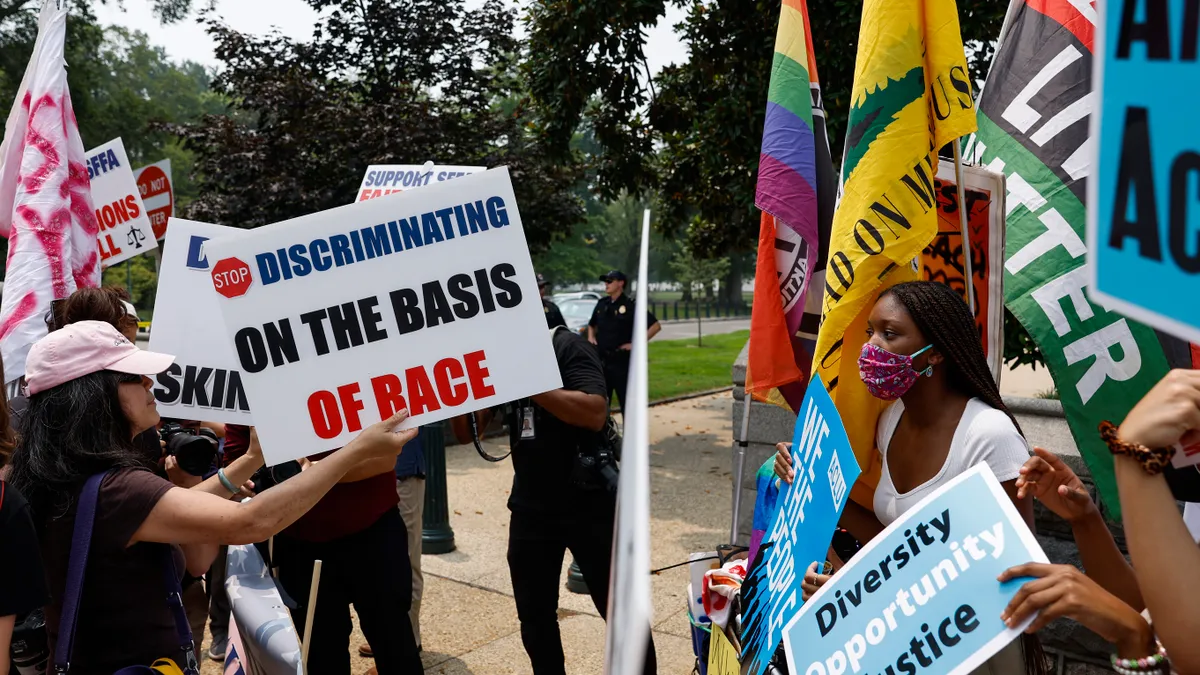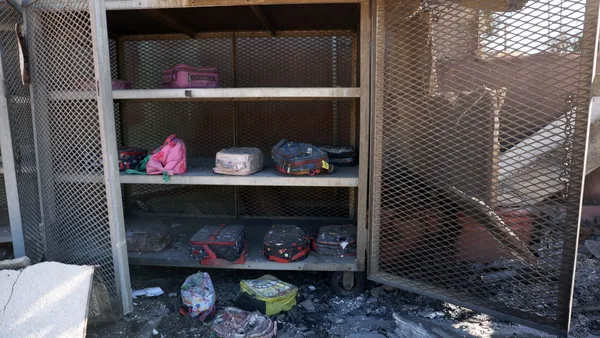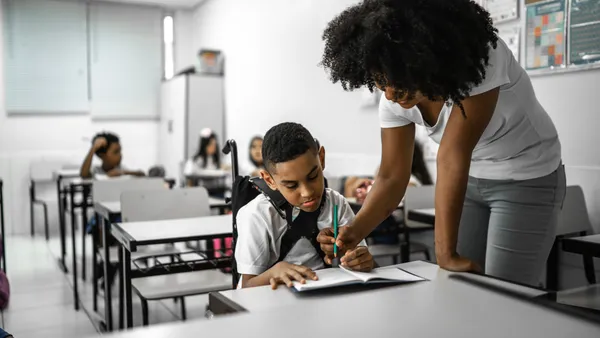Dive Brief:
-
The U.S. Supreme Court is considering whether to take on a case that calls into question temporary admissions policies meant to diversify student bodies at three competitive Boston schools.
-
The case, originally appealed to the high court in April, arose after a temporary pandemic-era admissions policy reserved seats for students with the highest GPA in each Boston neighborhood. This policy, which was in place only for the 2021-22 school year, replaced a traditional admissions system based on standardized entrance exams.
-
On Friday, justices convened for the second time — called a re-list — to determine whether the case should proceed to oral arguments. Less than a year ago, justices decided not to take a similar high-profile case against an elite Virginia high school, following their landmark 2023 decision overturning race-conscious college admissions.
Dive Insight:
Justices can consider whether to accept a case over multiple meetings — or conferences — for a number of reasons, including: trying to gather the four votes needed to grant review, wanting to more closely dissect a case, or deciding to write an opinion accompanying a case’s rejection or reversal without hearing oral arguments.
Lawsuits over admissions policies that diversify enrollment in K-12 charter and magnet schools by factoring in aspects like students' experiences or socioeconomic backgrounds have escalated in the past few years. Advocates say they make admissions to competitive institutions more equitable, while opponents contend they discriminate against Asian and White students.
In the current case, Boston Parent Coalition for Academic Excellence Corp. v. The School Committee for the City of Boston, Asian and White students continued to be overrepresented in admissions to the magnet schools serving grades 7 through 12: Boston Latin School, Boston Latin Academy, and John D. O’Bryant School of Mathematics and Science. However, those student groups comprised a lesser extent than under the exam-based system in place prior to the pandemic.
A similar situation had unfolded in TJ v. Fairfax County School Board, the Virginia case that the court ultimately declined to hear. In that case, the school’s incoming enrollment was 73% Asian American prior to a change in its admissions policies. Just after implementing diversification policies, Asians made up 54% — or over half — of the incoming class. Court watchers had thought the justices might take the case since they met in conference on it multiple times, signaling their interest in the question at hand.
Plaintiffs in both the Virginia and Boston cases were represented by Pacific Legal Foundation, a public interest civil rights law firm.
The firm is also currently litigating similar cases against admissions policies in Maryland's Montgomery County Public Schools and in New York City. Those cases made headway in the 4th and 2nd U.S. Circuit Courts of Appeals, respectively, this year.
In the New York City case, the 2nd Circuit decided in September that an admissions program selecting students from schools with a 60% or higher poverty rate had a discriminatory impact on students. Litigation is still ongoing over whether the government intended to discriminate when implementing the policy.
Greater attention was drawn to admissions policies in K-12 following the Supreme Court's landmark 2023 decisions in two separate but related cases, Students for Fair Admissions v. Harvard University and another against the University of North Carolina at Chapel Hill.
Justices ruled last year in those cases that race-conscious admissions policies at the two universities violated the 14th Amendment.













